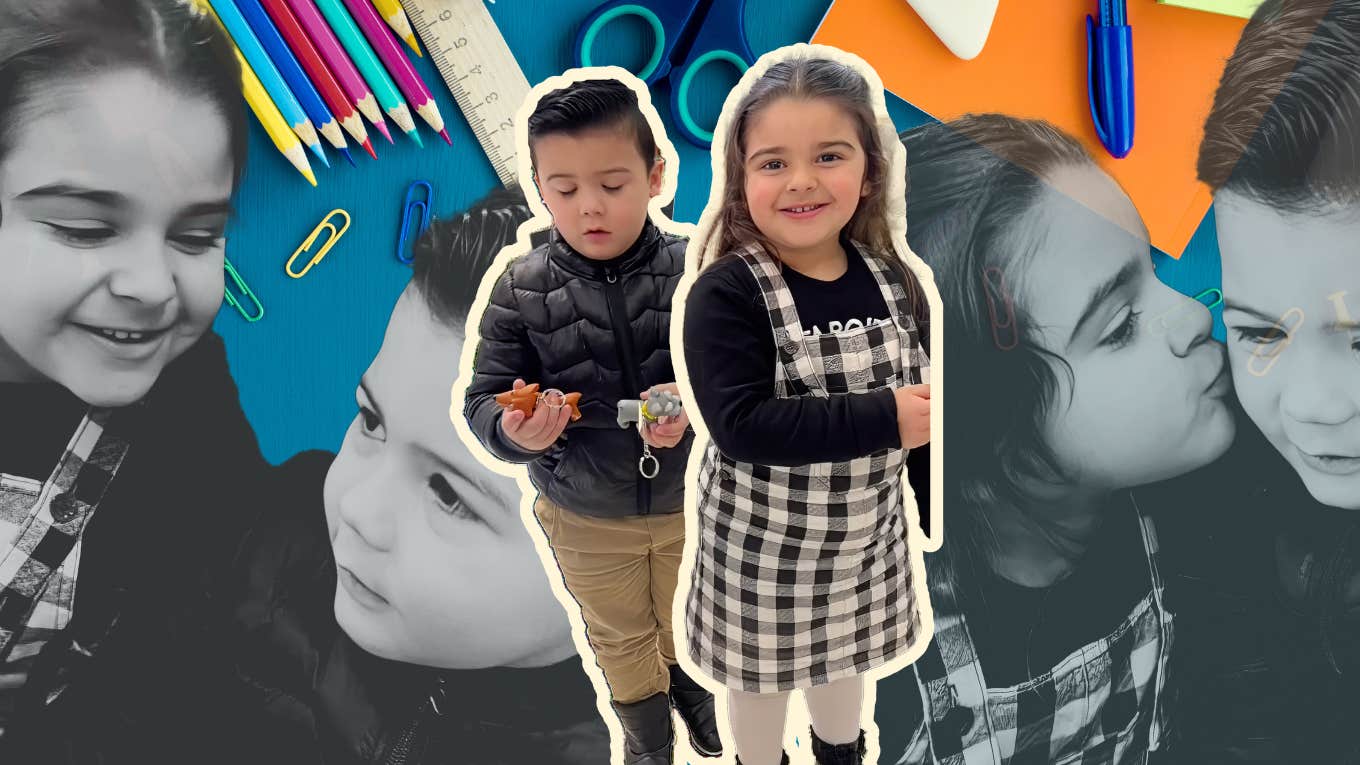The Sweet Moment A Nonverbal Boy Makes His First Friend
Making friends can be among the biggest challenges autistic children face, but for these youngsters, it was a piece of cake.
 @sainara_sartori and @espacoleticiasoares / Instagram; Anna Kim / Canva
@sainara_sartori and @espacoleticiasoares / Instagram; Anna Kim / Canva When it comes to people with disabilities, inclusivity can make all the difference, especially when it's children we're talking about.
Two moms in Brazil are doing all they can to make that known after a touching moment in which their kids formed a bond at school that has changed everything for them.
Video of the two youngsters, Ayla and Heitor, shows the moment the nonverbal boy made his first friend.
Little Heitor is a child with nonverbal autism, a form of the condition in which people speak very little or not at all and which affects between 25% and 30% of autistic people. For children with autism, making friends can be a challenge no matter what because of the way the autism impacts social skills and self-perception. But when you don't speak, that difficulty can be on a whole other level.
But there are more ways to communicate than just spoken words, of course. And a video filmed at Heitor's school shows just how powerfully nonverbal children can make themselves seen and known whether they ever speak a word or not.
The video has gone massively viral both in Brazil and worldwide. It shows Heitor befriending a little girl in his class named Ayla. The two are shown embracing in big warm hugs and cuddling in their classroom, walking hand-in-hand on the playground, and even exchanging pecks on the cheek, always with big smiles on their faces.
According to multiple platforms that distributed the heartwarming video, Ayla is Heitor first friend ever, and their heartwarming story has touched people around the world.
Heitor and Ayla's moms want their kids' story to show the world the important of inclusivity.
"Ayla and her love for her little friend Heitor... She always said that Heitor her classmate was a cutie," Ayla's mother, Sainara Sartori, told Brazil's Portal SCC10 news platform. In an Instagram post sharing the network's coverage of her daughter and Heitor, she wrote that the bond they share has made her entire family "extremely happy."
Heitor's mother, Leticia Soares, understandably was even more effusive. "Thank you so much for the affection," she wrote in an Instagram comment. "I'm Heitor's mom! My heart is warm seeing my son get so much love!"
And the two youngsters have since taken their friendship beyond school. Both moms posted snapshots from an outing the two families recently took together so that Ayla and Heitor could get to know each other better.
"May this friendship last a lifetime," Sartori wrote under the post. "Meeting baby boy Heitor we can understand the love Ayla has for him, he’s too perfect."
Experts say that inclusivity can help autistic children and neurotypical children alike.
According to autism advocacy organization Autism Speaks, including autistic people can help them bolster their social skills and self-esteem. Inclusion creates an environment where neurotypical people become role models of sorts, which helps autistic people "learn from their peers" simply by experiencing how they communicate and interact socially.
There's even evidence that inclusion can help nonverbal autistic children learn to speak. Many nonverbal autistic children do eventually go on to develop speech skills, with some even developing fluency. Studies have shown that social engagement, like that acquired from friendships and inclusive environments with other childrren, can be beneficial in helping nonverbal children develop these skills.
But neurotypical children benefit from the inclusion, too. Autism Speaks says inclusive classroom and play environments help neurotypical children learn empathy skills, because it teaches them to "see people first and the disability second."
It also allows children to learn that people with conditions like autism also have special strengths, which all works together to lessen the stigma against people with disabilities.
As Ayla and Heitor show, sometimes all it takes is for one kid to reach out to one another.
John Sundholm is a news and entertainment writer who covers pop culture, social justice and human interest topics.

